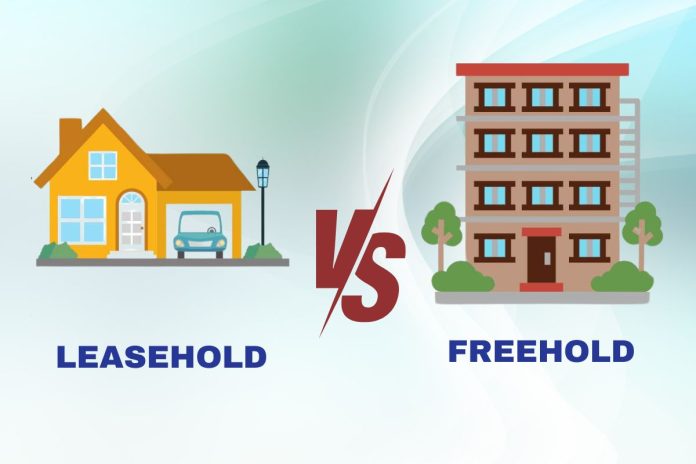One of the first choices you’ll have to make when trying to purchase real estate in Ormskirk is between a leasehold and a freehold. The distinction between these two forms of ownership may have a big influence on your long-term financial planning, your control over the property, and your obligations as a homeowner.
This in-depth study examines the main differences considered by conveyancing solicitors between freehold and leasehold property in Ormskirk to assist potential buyers in making an informed decision.
Understanding freehold and leasehold
The main difference between freehold and leasehold ownership lies in the extent and duration of ownership.
Freehold: Buying a freehold property means purchasing the building and the land it stands on outright. As a freeholder, you own the “title absolute” and have control over the property indefinitely. You are responsible for the maintenance and upkeep of the building and the land, but you also have the freedom to make decisions about the property without needing permission from a landlord.
Leasehold: During the term of your lease agreement with the freeholder, you are the owner of the property. Unless the lease is renewed, ownership returns to the freeholder after the lease expires. In Ormskirk, leasehold properties are typical for apartments and flats where several individuals reside in one structure.
Pros and Cons of Freehold
Advantages:
-
Complete Control:
Freeholders can make changes to their property without consulting a landlord (though planning permissions may still be required).
-
No Ground Rent or Service Charges:
Unlike leaseholds, freeholds do not require the payment of ground rent or service charges for the maintenance of common areas.
-
No Lease Expiry:
Since ownership is indefinite, freeholders don’t have to worry about the decreasing value of their property as a lease runs out.
Disadvantages:
-
Higher Responsibility:
All maintenance and repair costs fall on the freeholder, which can be significant, especially in older properties.
-
Potentially Higher Cost:
Freehold properties can be more expensive to purchase than leasehold properties.
Pros and Cons of Leasehold
Advantages:
-
Lower Purchase Price:
Leasehold properties are often less expensive upfront than comparable freehold properties.
-
Less Maintenance:
The freeholder is typically responsible for maintaining the building’s exterior and common areas. This can reduce the individual maintenance burden on the leaseholder.
-
Flexibility:
Leaseholds can be an affordable way to access desirable locations, particularly in expensive urban areas where purchasing a freehold may be unfeasible.
Disadvantages:
-
Ongoing Costs:
Leaseholders often pay ground rent and service charges, which can increase over time.
-
Restrictions:
Leaseholders may need to get permission from the freeholder for major alterations or improvements.
-
Lease Length:
The value of a leasehold property can decline as the lease gets shorter. Properties with shorter leases can be difficult to sell and may be challenging to mortgage.
Buying a Leasehold in Ormskirk: What to Look Out For
If you’re considering a leasehold property in Ormskirk, it’s important to be thorough in your research and understand exactly what you are buying into:
-
Length of the Lease:
Look for properties with longer leases; a lease with less than 80 years remaining can be problematic when you re-sell or seek a mortgage.
-
Ground rent and service charges:
Understand these costs and check if they are likely to increase over time. Some leases have clauses that allow significant increases, which can affect affordability.
-
Restrictions and Permissions:
Check the lease for any restrictions on use, alterations, or subletting. Knowing these can help avoid legal issues with the freeholder.
-
Freeholder Reputation:
Research the freeholder’s reputation, especially if buying in a building with multiple leasehold units. A good freeholder will maintain the building well, which is crucial for preserving the property’s value.
The Role of Conveyancing in Ormskirk
Transferring the legal title of a piece of property from one person to another is called conveyancing, and this is where a conveyancer in Ormskirk or solicitor comes in quite handy. They can guide you through the intricacies of freehold and leasehold acquisitions by:
-
Checking the lease:
A conveyancer will review the terms of the lease to ensure there are no onerous conditions or terms.
-
Taking Care of Legal Requirements:
They make sure that the required legal documentation is completed correctly and on schedule.
-
Offering Advice on Possible Problems:
An experienced conveyancer will point out any possible concerns with the property or its paperwork, such as problems with the duration of the lease or the service charge schedule.
Choosing between a leasehold and a freehold property in Ormskirk involves a consideration of your long-term goals, financial situation, and willingness to take on certain responsibilities. While freeholds offer more control and fewer ongoing costs, leaseholds may be more suitable for those looking for a lower initial investment and fewer maintenance responsibilities.
It is important to carefully weigh the pros and cons of each option before making a decision, as it can have a significant impact on your future financial security and overall satisfaction with your property. Seeking guidance from a qualified conveyancer can help you navigate the complexities of property ownership and make an informed choice that aligns with your individual needs and priorities.





